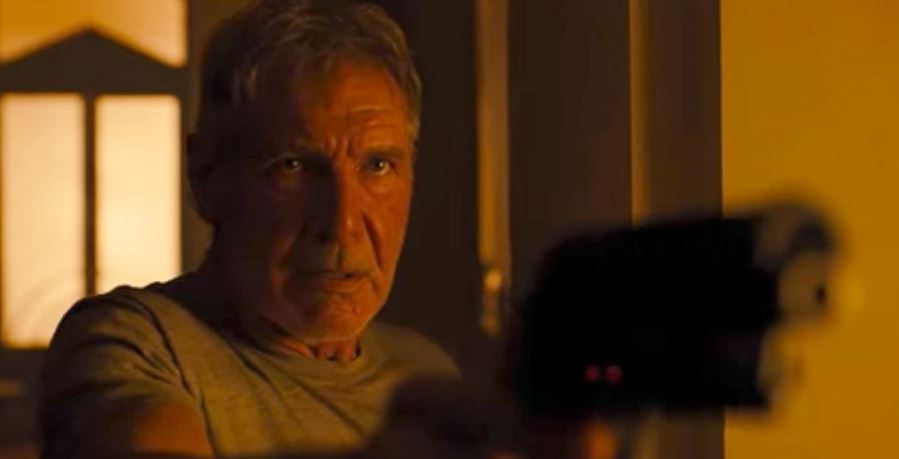I’m always game for a good thinker’s film. The film Memento, starring Guy Pearce as a man suffering from anterograde amnesia who searches for his wife’s murderer, really stands out. It was assembled in reverse temporal order with flashback scenes thrown in at random spots. Don’t check your smart phone during this one, folks.
The 1982 film Blade Runner is a cult classic. It’s also a first-rate thinker’s film. Based on Philip Dick’s sci-fi novel Do Androids Dream of Electric Sheep?, the story takes place in a dystopic world populated by humans and genetically engineered human look-alikes or replicants. Banned from living on Earth, replicants who stay or return to their terrestrial home are hunted by cops called Blade Runners. Harrison Ford plays a washed-up Blade Runner who accepts a final assignment to track down and eliminate a group of rogue replicants in Los Angeles, circa 2019.
The sequel, Blade Runner 2049, is set to be released in movie theatres in October 2017. All we currently have is a nearly two-minute trailer (below).
We know Ryan Gosling will play the part of the young Blade Runner, while Ford returns as the veteran Decard. In the bit of dialogue between them, Decard says, “I did your job once. I was good at that.” And Gosling’s character responds, “Things were simpler then.” That’s odd because the original never struck me as a simple film. Far from it. It’s a thinker’s film.
On the basis of this short clip, Slate movie reviewer Sam Adams claims that Blade Runner 2049 preserves “the one part of the original movie everyone hates”: the Harrison Ford voiceovers. The original has them. And so does the trailer. Supposedly Ford was dragged to the studio “kicking and screaming” to record the voiceovers in the first Blade Runner. He believed that the film was better without them.
At the time, director Ridley Scott and other film executives disagreed with Ford. Scott and the execs won and I’m glad they did. Adams is wrong. Not everyone hates the voiceovers. I count myself among those who like them, even though they were removed from the 1992 and 2007 director’s cuts. Though monotone, Ford’s free-floating, bodiless voice gives the film a surreal quality, making you wonder whether the entire story is a dream sequence. Personally, I hope the sequel revives the Ford voiceovers.
But it’s not the voiceovers that will make Blade Runner 2049 the thinker’s film of the year. It’s the question that still haunts the original: Was Rick Deckard a replicant? The film’s producer Michael Deeley believed that the character was human. So did Ford. According to their interpretation, Decard-the-human hunts and destroys replicants as well as falls in love with one. His mixed feelings towards non-humans lead him to question what it means to be human in the first place.
In 2007, Fred Kaplan of The New York Times reported that Director Ridley Scott settled the matter:
“The film’s theme of dehumanization has also been sharpened [in the Director’s Cut]. What has been a matter of speculation and debate is now a certainty: Deckard, the replicant-hunting cop, is himself a replicant. Mr. Scott confirmed this: ‘Yes, he’s a replicant. He was always a replicant.’”
Still, the deeper question remains: What is it to be human? Here is the likely secret to the original Blade Runer’s longstanding appeal. If the sequel can sustain our curiosity about this fundamental question, then it could be another cult classic.
The question of what it means to be human is timeless and timely. (HBO’s new hit show Westworld is the newest example of how this question persists and evolves.)
Timeless because it persists throughout the history of Western philosophy. Timely because technology is now, more than ever, encroaching on our humanity.
















Leave a Comment
Your email address will not be published. Required fields are marked with *